Louisiana’s ‘Cancer Alley’ advocates take fight abroad to plastic treaty talks
Representatives of grassroots groups are in South Korea pushing for a cut in worldwide plastics production and pollution
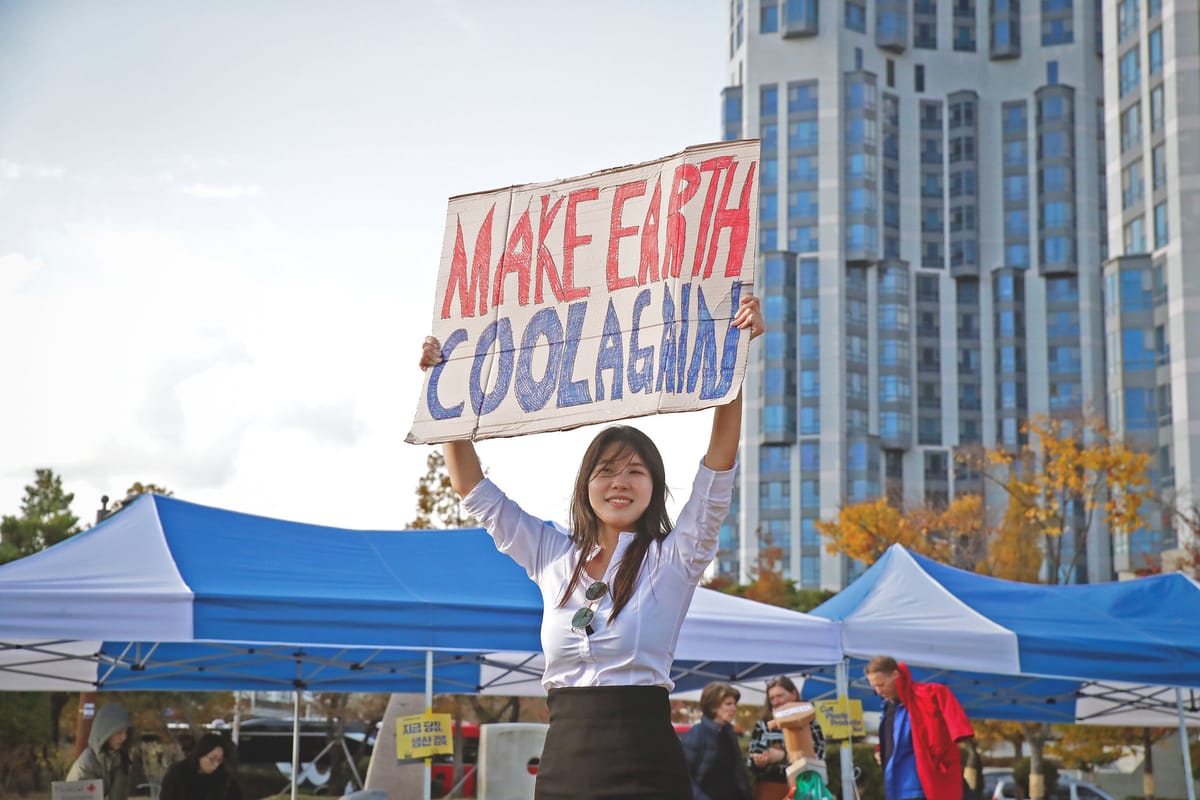
Published by the Louisiana Illuminator
Story updated throughout on Dec. 2, 2024 to reflect the collapse of plastic treaty talks and reaction.
Grassroots advocates from Louisiana and elsewhere last week converged on Busan, South Korea, where world leaders were supposed to hammer out details of the first-ever United Nations plastic treaty — a legally binding agreement to reduce production and use of plastic products.
But they came home disappointed after leaders from 170 countries could not reach a consensus on the best way to curb the use and manufacturing of plastics — leaving fenceline communities feeling abandoned with no sign of relief.
Advocates from Black and brown communities in Louisiana and Texas said world leaders sidelined their pleas and instead listened to the hundreds of lobbyists from the oil and gas industry who were at last week’s final negotiations.
“Just as our communities are on the frontlines of the problem, dealing with the devastating impact of plastic extraction and production, so should our voices be on the frontlines of the negotiations so that communities like Louisiana’s Cancer Alley can finally heal,” Jo Banner, co-founder of the Louisiana-based advocacy group The Descendants Project, said in a statement.
John Beard, chief executive officer and founder of Port Arthur Community Action Network in Port Arthur, Texas, added, “The presence of multi-billion dollar, multi-national petrochemical companies and their state minions asserts an undue influence on this treaty, relegating it to nothing more than a thinly veiled attempt to extend the use of fossil fuels, ergo plastics.”
The talks reportedly fell apart Monday after a week of closed-door meetings with leaders from countries including India worried about how reducing plastic production would affect their economies. The re-election of Donald Trump also had some countries concerned the United States would become an antagonist under any possible treaty,
In a statement before the fifth annual Intergovernmental Negotiating Committee on Plastic Pollution, UN Secretary-General António Guterres noted that hundreds of millions of tons of plastics are discarded each year, polluting land and waterways. And microplastics are now commonly found in our bloodstreams.
Banner was among a band of grassroots advocates from the United States in South Korea to serve as the windows to the health and environmental harms plastics production has had on their communities. Banner had hoped the plastic treaty would help protect the fenceline communities near petrochemical plants as incoming President Donald Trump begins to fill his cabinet with pro-industry appointees.
“That's why we are there, to make sure that even though he may ignore us… we have to make sure that our voices are heard,” Banner said before the talks. “There’s some countries who just cannot believe that some place like (Louisiana’s) Cancer Alley actually exists in the United States.”
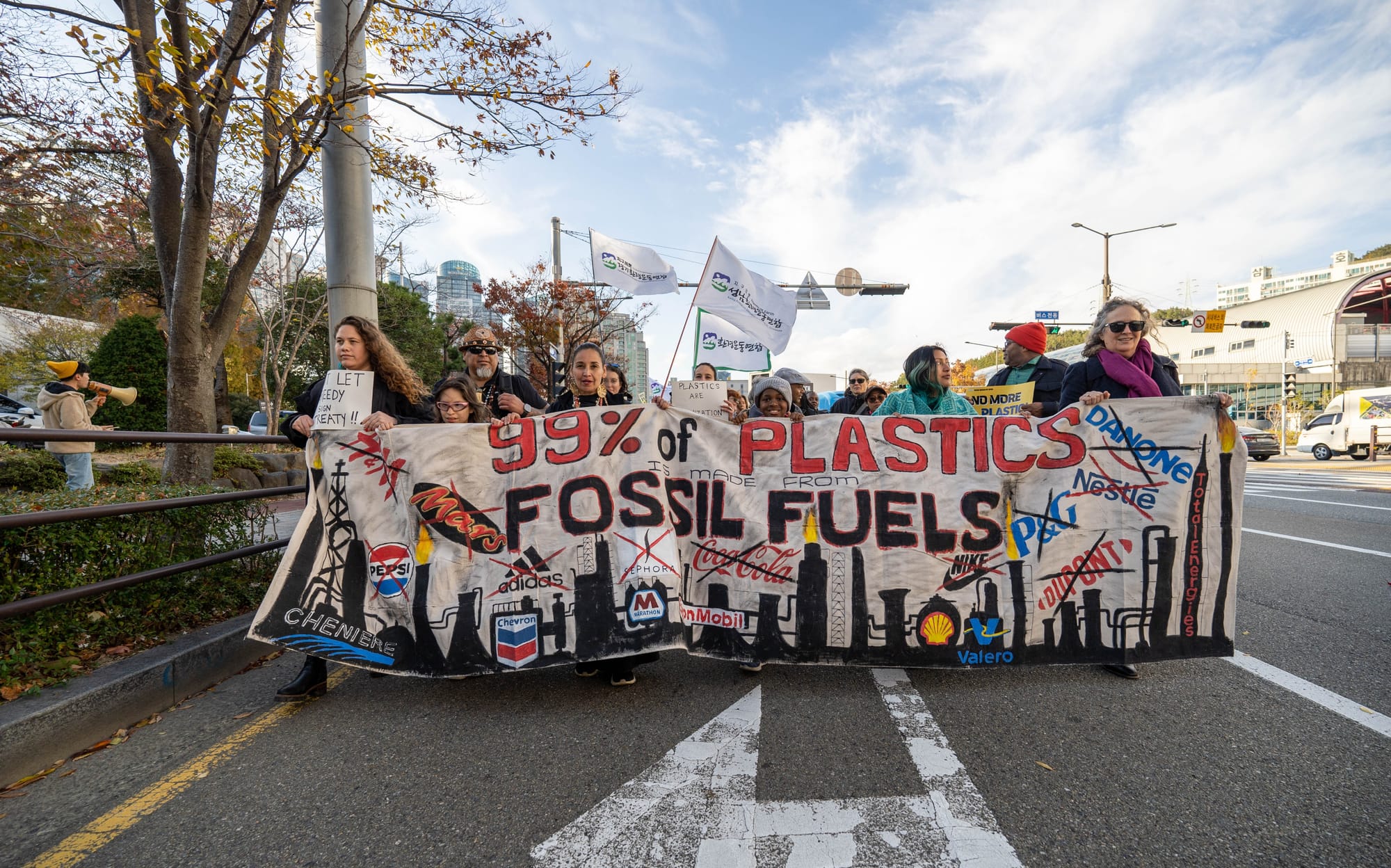
U.S. policy: No curb on production
Last month, a news report revealed that the Biden administration intended to backtrack on earlier promises to push for a cap on global plastics production. The Plastics Industry Association had warned production limits would negatively impact the $500 billion industry in the United States and wouldn’t help the country reach “sustainable goals.”
“As an industry, we remain committed to collaborating with all levels of government to combat plastic waste,” the group’s chief executive officer, Matt Seaholm, said in a prepared statement ahead of this week’s treaty talks. “Ensuring that the U.S. economy thrives while responsibly using our resources is a bipartisan priority. We will continue working with anyone who shares our commitment to reducing plastic waste and advancing sustainable practices.”
In November, the U.S. Environmental Protection Agency released Biden’s national strategy on preventing plastics pollution.
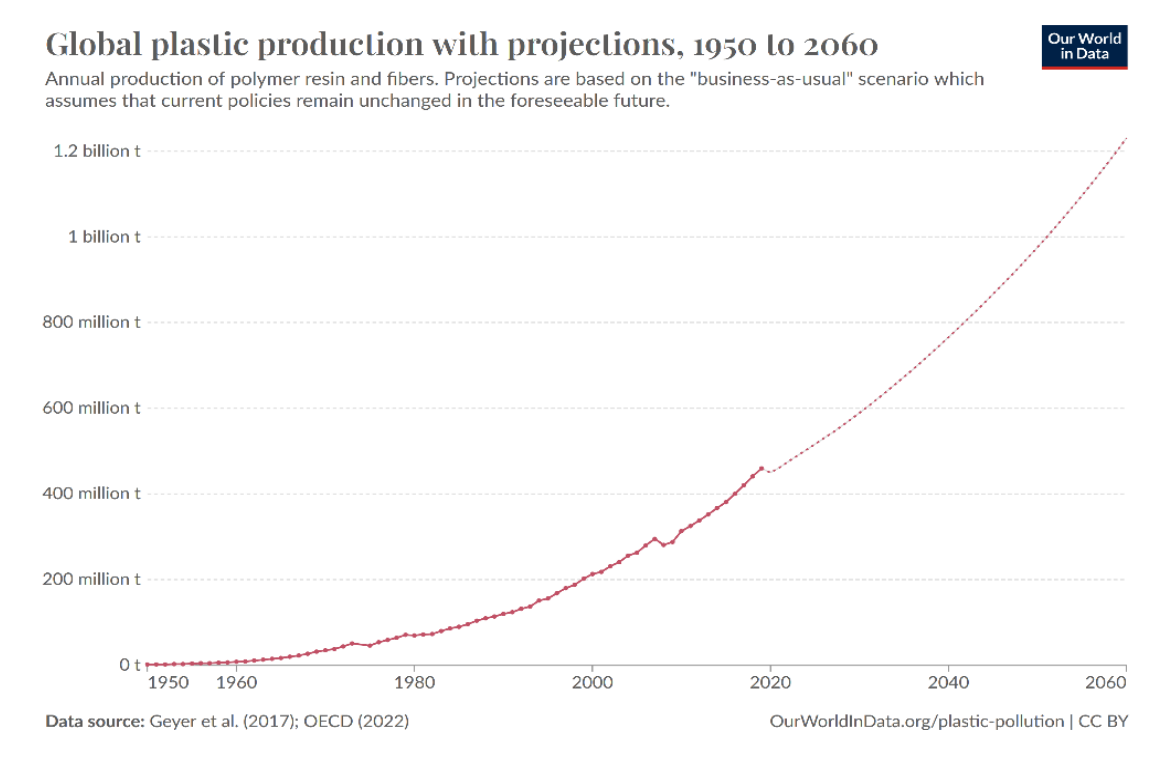
Instead of production limits, the strategy focuses on reducing single-use plastics, better measuring their impacts on the environment and human health, increasing recycling and reuse, exploring better materials and design and incentivizing decreased plastics pollution.
EPA Administrator Michael S. Regan said the new strategy would help overburdened communities by “reducing cancer-causing pollution from plastic manufacturing facilities” and “increasing industry’s accountability to take back recycled plastic packaging.”
“It was disappointing to hear a shift, but that does not stop us,” said Heather McTeer Toney, executive director of Beyond Petrochemicals, said last week before heading to South Korea. Toney’s group opposes the expansion of the petrochemical industry and is funded by billionaire former Democratic New York City Mayor Michael Bloomberg, who is a special UN envoy on climate.
Toney said the local delegation was hopeful, even as the United States faces a second Trump presidency.
She said she believes the participants with lived experience in polluted communities have become “leaders and very well respected voices on an international stage.” But Toney accused the plastics industry of “flooding” the talks with lobbyists; a report by the Center for International Environmental Law (CIEL) counted 220 fossil fuel and chemical industry advocates at Busan.
“People do look to the United States for leadership,” she said. “It is very unfortunate that there seems to be a change in the tone from the U.S. government currently and what we thought were potentially caps on plastics pollution.”
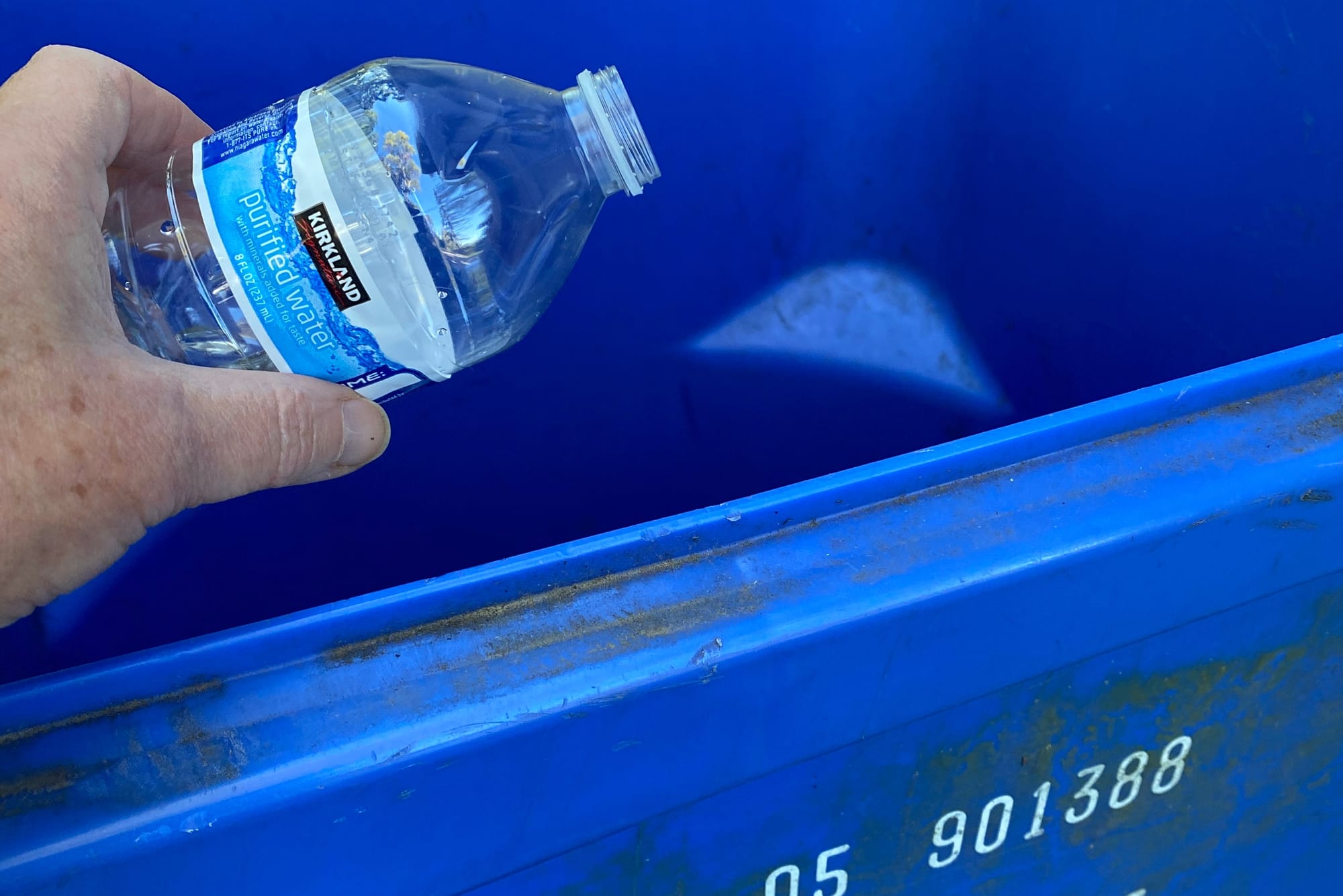
Climate law in the crosshairs
Trump has made it clear he intends to give the fossil fuel industry — which provides the feedstock for plastics manufacturing — great deference. The incoming president also announced his intention to appoint ex-New York congressman Lee Zeldin to lead the EPA. Zeldin has vowed to roll back a lot of the provisions in Biden’s 2022 Inflation Reduction Act, which includes the largest investment in clean energy in U.S. history.
But Trump may not be able to accomplish everything he has vowed to do.
“The interesting thing about today is it's different than it has been before because clean energy is actually a very important incentive across all districts in the United States,” said Gina McCarthy, the former EPA administrator and now chief executive officer for the Natural Resources Defense Council, said last week. “It’s a big deal; there’s lots of money being made.”
She added: “Keep in mind that clean energy is beneficial to people. It’s lowering their cost of living, helping clean the air in many places. So it’s very difficult, I think, for him to think sweepingly about how to roll back any of (the IRA) back.”
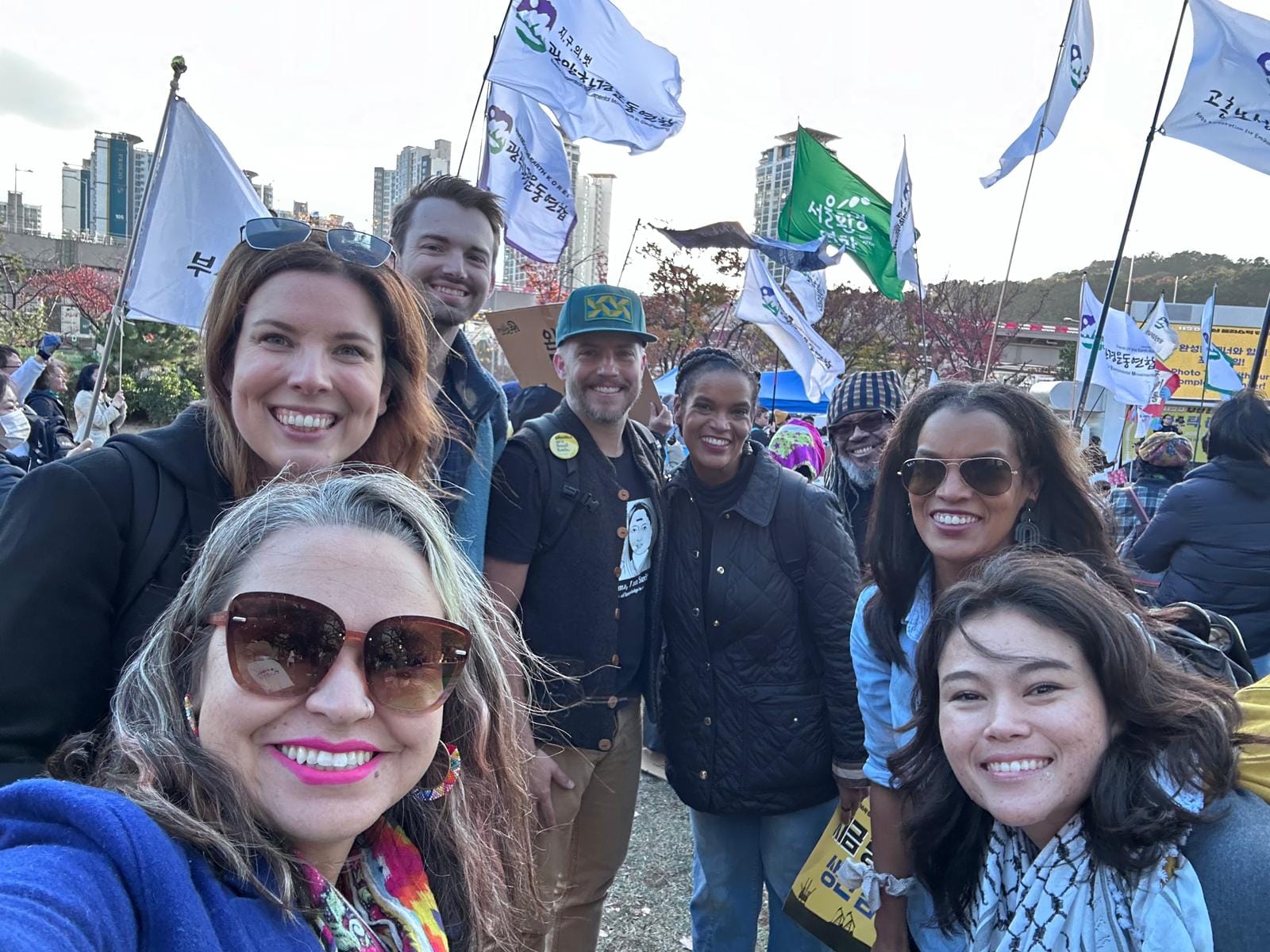
Trump takes aim — again — at climate pact
The plastic treaty talks came as the United States is poised for a second Trump administration — and many environmental initiatives appear to be headed for the chopping block.
The last time he was in office, Trump pulled America out of the Paris Agreement, the international treaty geared toward climate mitigation and reductions in greenhouse gas emissions. Trump said withdrawing from the agreement would keep America’s economy competitive with other high-emissions countries including India and China.
Trump has indicated he intends to do it again.
But recent polling shows many Trump voters differ with the incoming president on environmental issues.
According to a survey conducted by the Environmental Protection Network right after the 2024 presidential election, there is overwhelming support for the work and purpose of the EPA — even among Republican voters. Among the 1,000 self-identified voters surveyed, 76% of Trump voters oppose weakening the agency’s power to protect the environment.
In fact, 81% of the Trump supporters surveyed want the U.S. Congress to increase funding for the federal agency, with 72% also favoring support for communities disproportionately impacted by air and water pollution.
However, the GOP delegation attending last month’s COP29, the United Nations’ annual convention on climate change, said Trump plans to ”restore” America’s energy dominance with more production of fossil fuels.
Jane Patton, the U.S. fossil economy campaign manager for the CIEL, said the new administration is unlikely to join any environmental pacts.
“I am really concerned about what that will mean for the plastics (treaty); what that's going to mean for international multilateralism, essentially for the environmental treaties,” Patton said. “(Under Trump), the U.S. government is not in any way going to be an ally in international environmental treaties. They just won't.”
Floodlight is a nonprofit newsroom that investigates the powerful interests stalling climate action.


